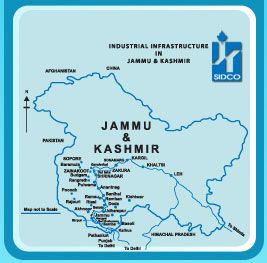Jammu: The number of identified sick industrial units in Jammu and Kashmir is rising and industrialists say the government is not taking adequate measures to arrest the degrowth in the sector.
“The number of sick units has gone up to 457 till March 2013 from 350 in 2011,” said a state government official.
According to the official, there are 25,000 units in Jammu and Kashmir, including 150 large and medium scale. Of these, about 11,300 are in Jammu region and remaining in the Kashmir Valley.
He added that there are about 16,500 small-scale industries, of which 5,825 are closed or “untraceable”.
Y.V. Sharma, president of Jammu Chamber of Commerce and Industries, said the government had promised revival of a central package which expired in June 2012 “but nothing has happened in this regard.”
“We have a long way to go before we can say that Jammu and Kashmir is on path of industrialisation,” he said and added that the sector was “facing very tough challenges.”
The central government had announced a package of incentives and concessions for industries in Jammu and Kashmir in 2002 for a period of 10 years, which expired in June 2012.
“The basic industry friendly atmosphere and culture in Jammu and Kashmir which is lacking at the moment,” said Ashwini Soni, an industrialist in Bari Brahmana Industry complex, about 20 km from Jammu. “The government is not showing adequate intent and keenness to develop industries in Jammu and Kashmir.”
According to a study conducted by the industries department, inadequate financing by banks and lack of marketing facilities for end products and the turmoil in Kashmir region were the reasons behind units going sick in the past 10 years.
The study showed that “32.71 percent of the units became sick due to financial crunch, 30.55 percent due to law and order and other problems, 19.40 percent due to marketing problems, 9.24 percent due to raw material unavailability and 8.10 percent due to migration.”
C.L. Gupta, a retired officer of the industries department, said the government has not been able to provide incentives to the sector.
Among the central government incentives which have expired, were total income tax exemption, 100 percent excise refund, 90 percent transport subsidy, 100 percent insurance cover to industrial units, 15 percent subsidy on capital investment on plant and machinery and three percent interest subsidy on working capital.
– IANS
The opinions, beliefs and viewpoints expressed by authors, news service providers on this page do not necessarily reflect the opinions, beliefs and viewpoints of Hill Post. Any views or opinions are not intended to malign any religion, ethnic group, club, organization, company, or individual.
Hill Post makes no representations as to the accuracy or completeness of any information on this site page.



